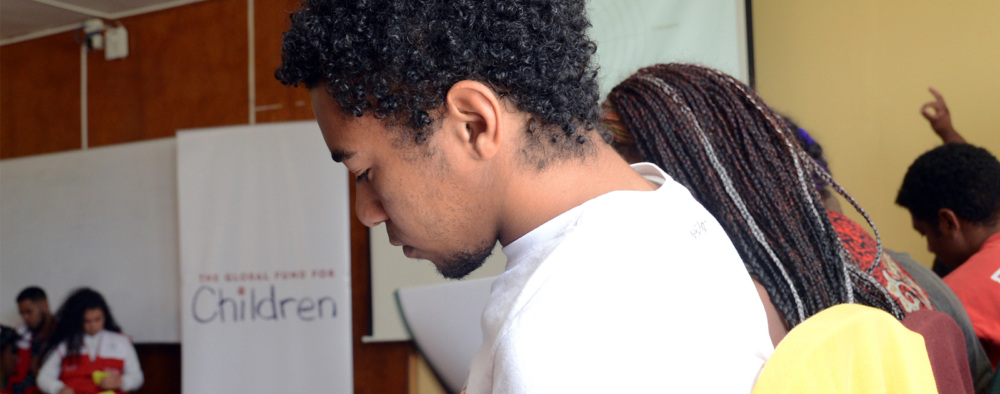
Gender justice
Education, Gender justice, Safety and wellbeing, Youth power
“Fifteen years ago, we created this organization to find and bring together Afro-Peruvian youth and young people who have been victims of racism and discrimination in school,” Marco said, “and give them a space where they can just talk among themselves about things we didn’t have a chance to learn about – such as our identity, our people, and our cultures that we want to try to learn together now.”
Ashanti Peru provides young Afro-Peruvians a safe space to discuss and explore their identity and culture, while also combatting systemic racism, discrimination, and poverty. The organization creates opportunities for youth to actively participate and develop skills in the world of civil and human rights.
[image_caption caption = “Ashanti participants engaging in a workshop. Photo Credit: Estrella Vivanco-Stevenson.” float = “”] [/image_caption]
[/image_caption]
As Ashanti Peru grew, Marco and his team quickly realized that they were not alone in their struggles with racism and self-identity.
“We are actually a quite substantial group that experienced this kind of racism that was cloaked as games or jokes or just people fooling around. And when we asked each other at that point what we had learned about ourselves and our identities in this environment, we discovered that the only thing they have really taught us is that we have been slaves,” he said.
Marco explained that Peruvian history books only picture Afro-Peruvians as former slaves who were eventually freed – end of story. His hope is that Ashanti and its youth participants are no longer victims of racism and discrimination, but rather that they become the protagonists in expanding the narrative around Afro history and culture.
“We had not just been slaves. We had our own kingdoms, cultures – and our own stories go much beyond what we have been taught in school,” he said.
[image_caption caption = “A group of Ashanti participants. Photo Credit: Estrella Vivanco-Stevenson.” float = “”] [/image_caption]
[/image_caption]
For many of the youth attending Ashanti workshops, it was the first time they began to identify as Afro-Peruvian. Through the sharing of stories and family trees, many would realize that they are a product of this heritage and culture.
“It was really cool to see them and hear them speak out – not only about the suffering of racism but also the heroes of our history, and the Afro-Peruvian history, and to talk about the positives of having curly hair and a beautiful skin tone. This gave them positive reasons and incentives to identify as Afro-Peruvian,” Marco said.
As Ashanti caught momentum, the organization continued to cultivate and expand conversations with Afro-communities and youth across the country. The goal? To better understand the key problems facing Afro-descendant youth. The clear interest and mobilization around issues facing these communities drove Ashanti to develop proposals and confront the Peruvian government and its officials.
“We settled on proposals that were really directed towards the state from the Afro-Peruvian youth that were brought together to discuss education, work, health, culture, and political participation,” Marco said.
In 2016, representatives of Ashanti Peru presented these youth proposals and testimonies to the political parties participating in the National Elections, and demanded that they be incorporated into their 2016-2021 government plans.
“A lot of people got to know who we were because this was a very visible moment. It was the first time having Afro-decedent youth coming together not just to dance or to play soccer, but to have actual political participation to generate these proposals for social inclusion for Afro-Peruvian youth,” Marco said.
Visibility from these efforts turned into an increased interest among youth to join and be a part of Ashanti Peru. To date, the organization has brought on 200 youth volunteers across eight states in Peru.
[image_caption caption = “Marco speaking on behalf of Ashanti Peru amongst Peruvian officials.” float = “”] [/image_caption]
[/image_caption]
The Ashanti Peru team and volunteers are doing a tremendous amount of outreach, knowledge exchange, and political mobilization. Marco broke down Ashanti’s work into three pieces:
Ashanti Peru is serving as a meeting and training point for young Afro-Peruvians. Together, they are working to end racism and inequality by actively exercising their basic human rights as citizens of Peru. To learn more about Marco and Ashanti Peru, visit ashantiperu.org.
